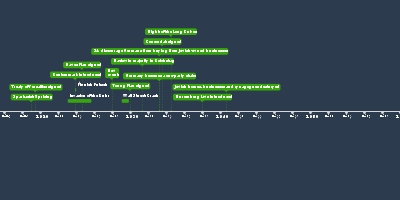Munich Putsch (8 nov 1923 anni – 9 nov 1923 anni)
Descrizione:
The Nazis aimed to overthrow the Bavarian Government, which was led by Gustav von Kahr and based in Munich.Once they had established power for themselves in Bavaria, they could look to overthrow the Weimar Government.
They were supported by General Ludendorff, who they intended to make leader of Germany.
Leading Bavarian politicians including Kahr were meeting in the Buergerbraeukeller Beer Hall in Munich on 8 November, 1923.
Hitler and the SA (stormtroopers) interrupted the meeting, threatening the crowd with violence.
Kahr, General von Lossow (leader of the army in Bavaria) and Colonel von Seisser (head of the Bavarian police) were locked in a back room. They were forced to publically announce their support for the Nazis.
Hitler left the beer hall in order to oversee clashes between the SA and the German army elsewhere in Munich
Ludendorff allowed the politicians to leave the beer hall.
This was a mistake as they immediately renounced support for the Nazis.
The next morning the Nazis, led by Hitler and Ludendorff, marched into the centre of Munich.
The police and army confronted them and shots were fired. The Nazi supporters and SA were scattered.
Hitler was put on trial, charged with treason.
He was found guilty and sentenced to five years in prison, but was released after nine months.
During the trial, he was able to publically explain that his aim was to save Germany from the Government, which was failing the people.
While in Landsberg Prison, Hitler used the time to write his book Mein Kampf, in which he outlined his fascist ideas and plans for changing German society.
The failed putsch emphasised that there was a great deal of opposition to the Weimar Government. The fact that Hitler was only sentenced to five years and that he was eligible for parole in nine months, suggests that German judges and courts were also opposed to the Government.
Aggiunto al nastro di tempo:
Data:
8 nov 1923 anni
9 nov 1923 anni
~ 24 hours
